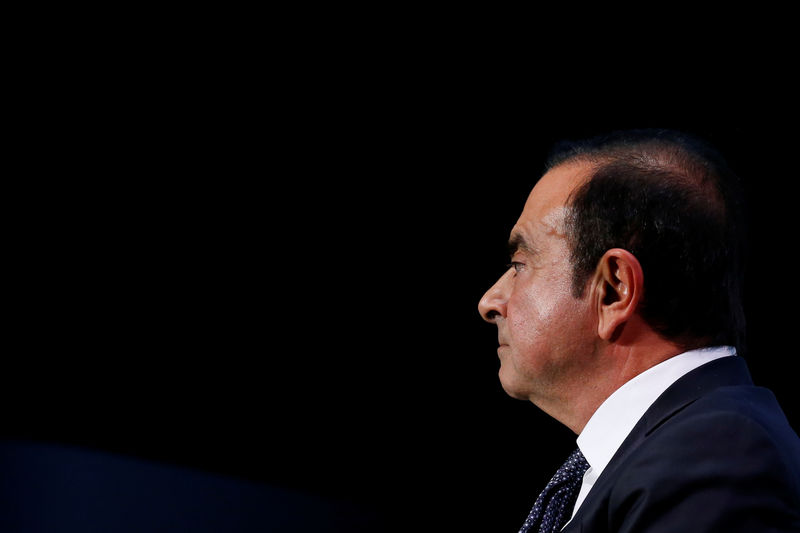This post was originally published on this site
https://i-invdn-com.akamaized.net/news/LYNXNPEEAJ0UG_M.jpg © Reuters. Carlos Ghosn’s Escape Puts France in Bind With Nissan Alliance at Stake
© Reuters. Carlos Ghosn’s Escape Puts France in Bind With Nissan Alliance at Stake(Bloomberg) — If there’s one thing France doesn’t need right now, it’s Carlos Ghosn on the loose.
The fallen automotive titan was supposed to be facing trial for financial crimes in Tokyo where he’s been detained for more than a year. But late on Monday it emerged that he’d escaped the Japanese authorities to take refuge in Lebanon.
It’s his next move that could make life awkward.
Ghosn’s wife Carole told Bloomberg Television last month that he wants to be tried in France, where he holds citizenship. If he landed in Paris that would complicate the relationship between France and Japan at a moment when President Emmanuel Macron is trying to shore up the Renault-Nissan auto alliance. France has a policy to never extradite its citizens outside the European Union.
Even in Lebanon, where France has close diplomatic ties, officials in Paris have an obligation to provide some support to the fugitive and risk being drawn into his dispute with the humiliated Japanese.
“If a foreign citizen was escaping French justice, we would be very angry,” Junior Economy Minister Agnes Pannier-Runacher told France Inter radio. “On the other hand, he’s a Lebanese, Brazilian and French citizen, and he has the right to consular support, like all French people.”
Pannier-Runacher’s comments typify the balancing act French officials have tried to pull off since Ghosn was arrested in Tokyo more than a year ago: respect for the Japanese sovereignty and for the ongoing legal procedure, while providing a base-level of support for a man who tangled with the French government, his largest shareholder, more than once while at the helm of Renault (PA:).
French officials are wary of any moves that might antagonize the Japanese as they try to protect a relationship that is vital to one of the country’s most important manufacturers. Renault chairman Jean-Dominique Senard said in a Wall Street Journal interview published on Dec. 25 that fixing the alliance was a matter of survival.
After leading Nissan and Renault for most of their two-decade partnership, Ghosn’s downfall exposed governance shortfalls at Nissan and brought long-standing tensions between the automakers to the fore, particularly regarding their capital structure in the partnership. Nissan’s new chief executive officer said this month that he is looking at what works and what doesn’t in the alliance, stressing that the partnership needs to benefit all parties.
“What interests us is the future of Renault and Nissan, and the alliance,” Pannier-Runacher said Tuesday. “We have turned the page, and today there is good work being done at the alliance.”
In an emailed statement following his escape, Ghosn said he refused to be “held hostage” by Japan’s “rigged” justice system any longer. But if he were to travel to France, the authorities might also bring him in for questioning as part of their own probe into his spending and potential misuse of corporate funds.
With his history of cutting jobs, Ghosn could also prove a lightning rod for criticism by unions already battling Macron over plans to modernize the pension system.“Once more, Ghosn has given himself the license to decide what is a matter of justice or not, just as he gave himself license to fire hundreds of thousands of employees, without any fair hearing,” Fabien Gache, a representative of the automotive branch of the far-left CGT union, said in a statement after the escape.
It took the French foreign affairs ministry more than 12 hours to come up with its response. Officials were unaware of the details of his escape, they said.
“I thought France was a country that defended the presumption of innocence. They’ve all forgotten everything Carlos did for France’s economy and for Renault,” Carole Ghosn told Journal du Dimanche in October. “All we’re asking for is the respect of his human rights and his right to defend himself, to a fair and quick trial in Japan or in France, where he is a citizen.”

